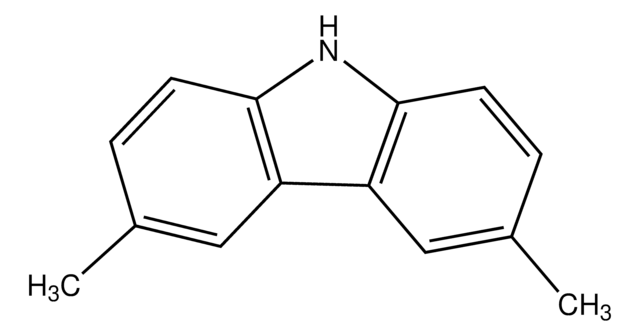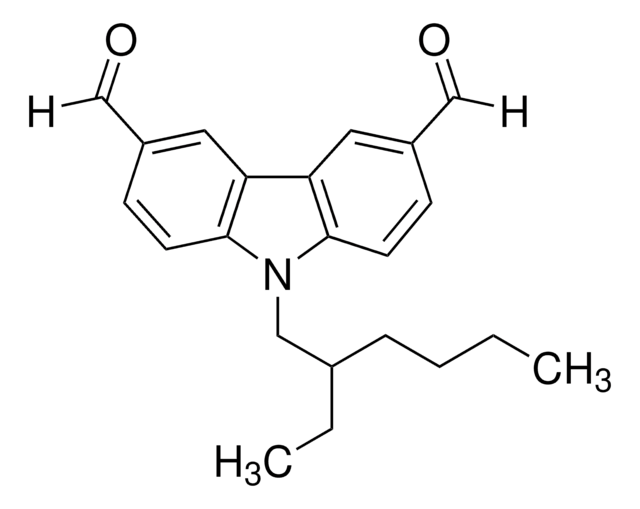259004
3,6-Dibromocarbazole
97%
Sinónimos:
3,6-Dibromo-9-H-carbazole, 3,6-Dibromo-9H-carbazole
About This Item
Productos recomendados
Quality Level
assay
97%
form
powder
mp
204-206 °C (lit.)
SMILES string
Brc1ccc2[nH]c3ccc(Br)cc3c2c1
InChI
1S/C12H7Br2N/c13-7-1-3-11-9(5-7)10-6-8(14)2-4-12(10)15-11/h1-6,15H
InChI key
FIHILUSWISKVSR-UHFFFAOYSA-N
¿Está buscando productos similares? Visita Guía de comparación de productos
General description
Application
signalword
Warning
hcodes
Hazard Classifications
Eye Irrit. 2 - Skin Irrit. 2 - STOT SE 3
target_organs
Respiratory system
Storage Class
11 - Combustible Solids
wgk_germany
WGK 3
flash_point_f
Not applicable
flash_point_c
Not applicable
ppe
dust mask type N95 (US), Eyeshields, Gloves
Elija entre una de las versiones más recientes:
Certificados de análisis (COA)
¿No ve la versión correcta?
Si necesita una versión concreta, puede buscar un certificado específico por el número de lote.
¿Ya tiene este producto?
Encuentre la documentación para los productos que ha comprado recientemente en la Biblioteca de documentos.
Los clientes también vieron
Nuestro equipo de científicos tiene experiencia en todas las áreas de investigación: Ciencias de la vida, Ciencia de los materiales, Síntesis química, Cromatografía, Analítica y muchas otras.
Póngase en contacto con el Servicio técnico








